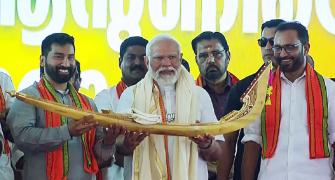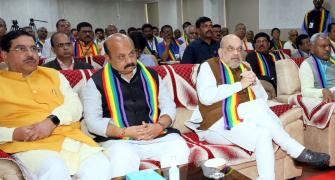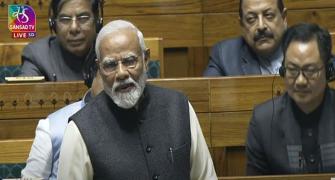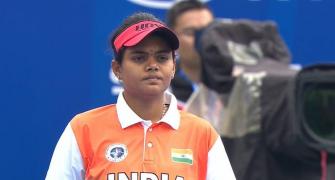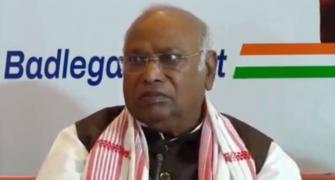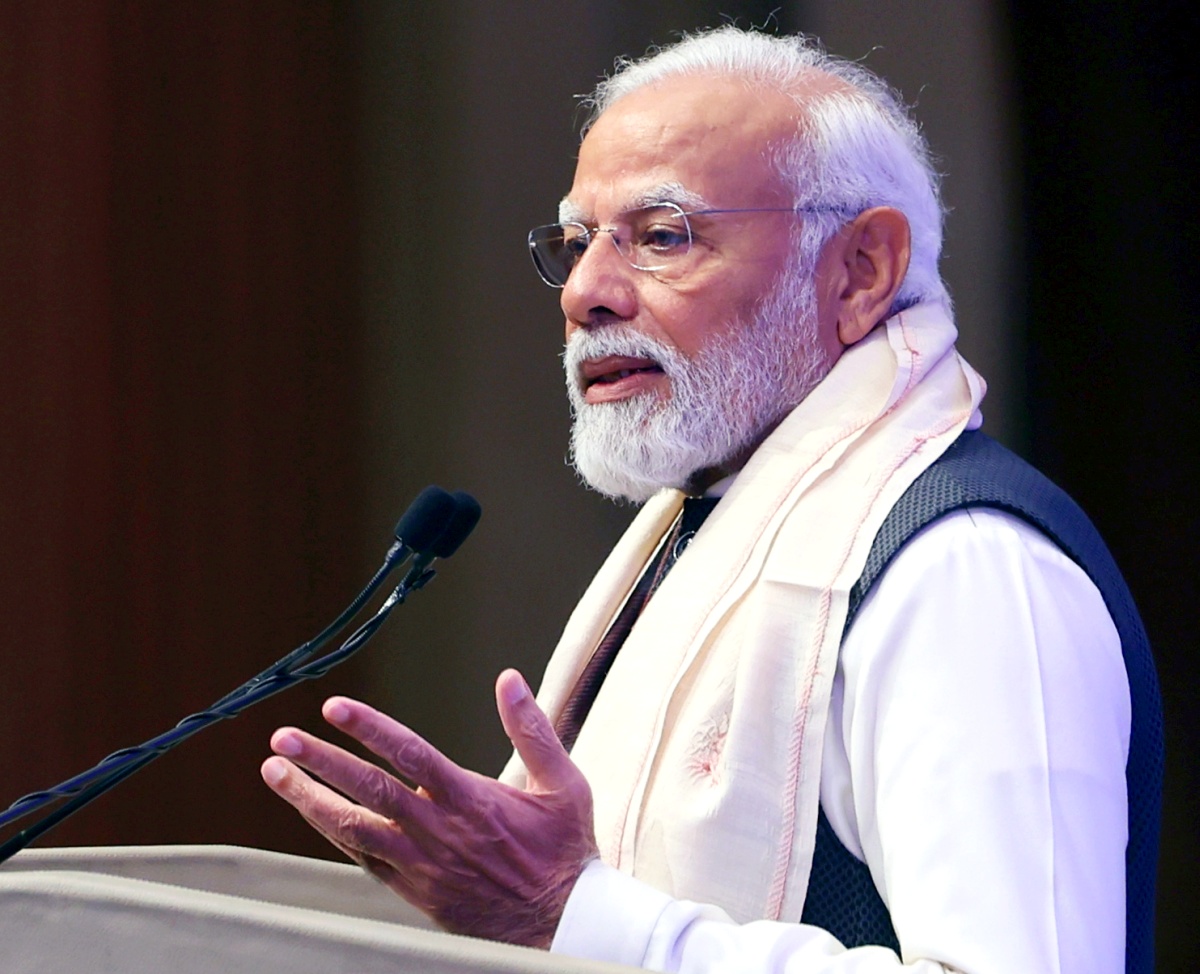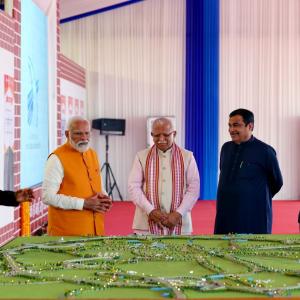The BJP is focusing determinedly on the seats it lost in 2019, with the hope of winning these either independently or with the aid of its allies.

In his pursuit of an unprecedented victory for the Bharatiya Janata Party (BJP) in the upcoming Lok Sabha election, Prime Minister Narendra Modi has set an ambitious target: 370 seats for the party and 400 for the National Democratic Alliance (NDA).
This goal, announced in his final speech to the 17th Lok Sabha on February 8, has led the BJP to focus determinedly on the seats it lost in 2019, with the hope of winning these either independently or with the aid of its allies.
The past fortnight rang up the curtain on the microstrategies the BJP has deployed to reach that figure -- which if realised, will come close to the 404 seats (with a later addition of 10) won by the Congress in 1984-85.
In Tripura, where it is the ruling party for a second term, the BJP brought on board a regional player, the Tipraha Indigenous Progressive Regional Alliance or Tipra Motha, led by Pradyot Debbarma, a former Congressman.
The Tipra Motha has 13 legislators in the 60-member Tripura assembly, and promptly, Animesh Debbarma, the former Opposition leader, and another MLA, Brishaketu Debbarama, were inducted into the state Cabinet. The Tipra Motha represents the rights and interests of indigenous tribes.
To strengthen its grip on the East, the BJP is trying to bring Odisha’s ruling party, the Biju Janata Dal (BJD), back into the NDA. In Odisha, the Lok Sabha and assembly polls will be held concurrently. Reports from Bhubaneswar suggest the prospective BJP-BJD arrangement would involve the BJP contesting most of the parliamentary seats, while leaving a majority of the assembly seats to the BJD.
So, where do the BJP's alliances in the southern states stand, excluding Karnataka, where it maintains a significant base despite a rout in last state polls and where it has been working to expand its presence with the Janata Dal (Secular)?
“We are winning as the single largest party in the South with our allies,” asserted Prakash Javadekar, a former Union minister who has worked in Andhra Pradesh and Telangana and is now based in Kerala. “We will regain ground in Karnataka because in the coming elections, and voters will vote for the PM.”
While Karnataka has 28 parliamentary seats, of which the BJP won 25 (plus the Mandya seat that Independent Sumalatha Ambareesh won with the BJP's support) five years ago, Andhra Pradesh, Telangana, Kerala, and Tamil Nadu together account for 101 seats. Of these, the BJP won four in Telangana in 2019 but failed to secure any in the other three.
In the 2023 Telangana assembly polls, the Congress secured a majority with 64 seats in the 119-member assembly, while the Bharat Rashtra Samithi (BRS) got 39 seats. The BJP picked up eight seats, a result that the Telangana unit saw as a “morale booster”.
Krishna Saagar Rao, the BJP’s chief spokesperson, said: “There is no talk of an alliance (with the BRS). We've already declared nine (of 17) candidates. A national party would be at a disadvantage carrying the BRS which is saddled with corruption charges.”
In neighbouring Andhra Pradesh, the BJP, the Telugu Desam Party (TDP), and Jana Sena Party (JSP) officially announced that they will be contesting the Lok Sabha and assembly polls together.
Like Odisha, Andhra votes simultaneously to elect its MPs and legislators.
Several rounds of discussions which the TDP chief N Chandrababu Naidu held with Amit Shah, Union home minister, and J P Nadda, BJP president, led to the inescapable conclusion that the Opposition’s votes must not be fragmented to facilitate a second win for the incumbent, Yuvajana Sramika Rythu Congress Party (YSRCP), led by Y S Jagan Mohan Reddy.
Amid reports that the state party was against tying up with the TDP-JSP, the BJP’s Andhra general secretary S Dayakar Reddy said: “The final decision vests with the national party. The state unit is not separate from the national party.”
Sources said the “catch” was Naidu did not agree on seat-sharing, using the purported Odisha template. “He also wanted more Lok Sabha seats because he thinks the TDP should leverage its numbers in Parliament as well,” a source said.
The TDP was part of the NDA until 2018, when Naidu walked out, citing the TDP’s unfulfilled demand for a special status to Andhra as the reason.
Ostensibly to exert pressure on the BJP to clinch a deal, the TDP announced its first list of 94 candidates for the assembly polls, while the JSP declared five names of the 24 it was allotted and those of three Lok Sabha nominees. The three parties said they would announce their seat-sharing formula soon.
In Tamil Nadu's melange of regional forces, many of which are breakaway groups of the Dravida Munnetra Kazhagam (DMK) and the All India Anna DMK (AIADMK), the BJP has to find its feet. Arvind Menon, national secretary and Tamil Nadu minder, said: “Our doors are open. We will welcome whoever wants to come because Modiji is the man of developing India.”
The only entity the BJP counts as its ally is the Amma Makkal Munnetra Kazhagam, led by T T V Dhinakaran, a nephew of V K Sasikala, a close associate of the late J Jayalalithaa. Dhinakaran was expelled from the AIADMK in 2017 and he floated his party the following year.
In Kerala, the BJP has found an ally, the Kerala Janapaksham (Secular) Party, led by P C George, a seven-time MLA who was earlier vice-chairman of Kerala Congress-M.


